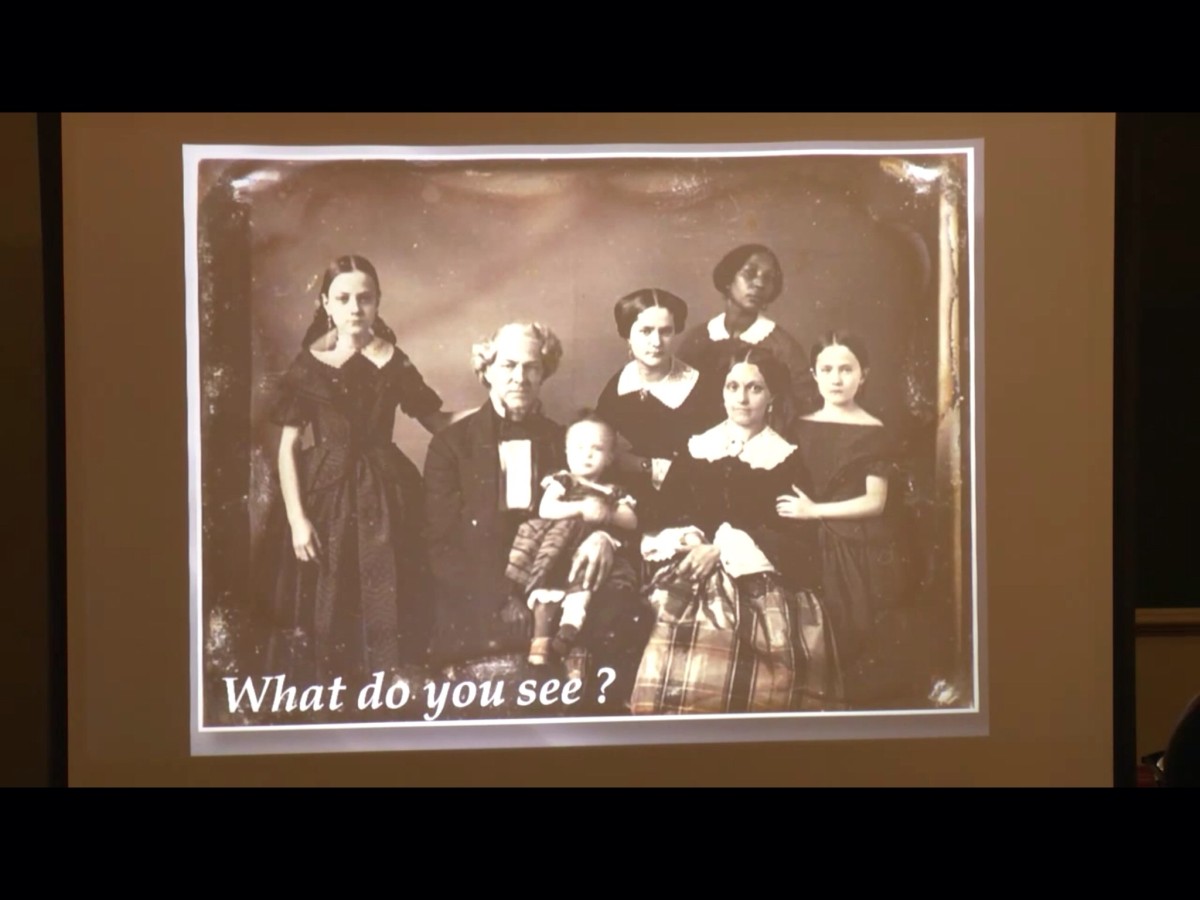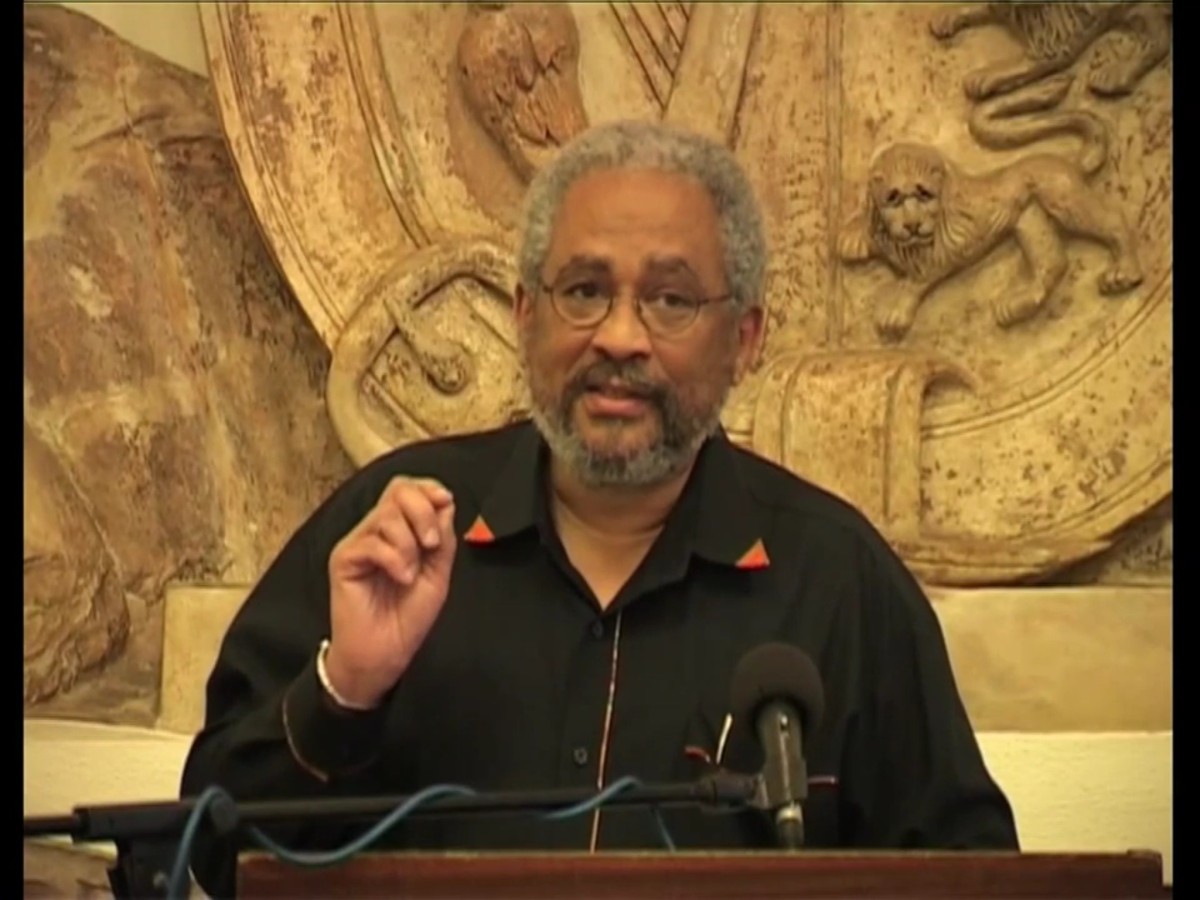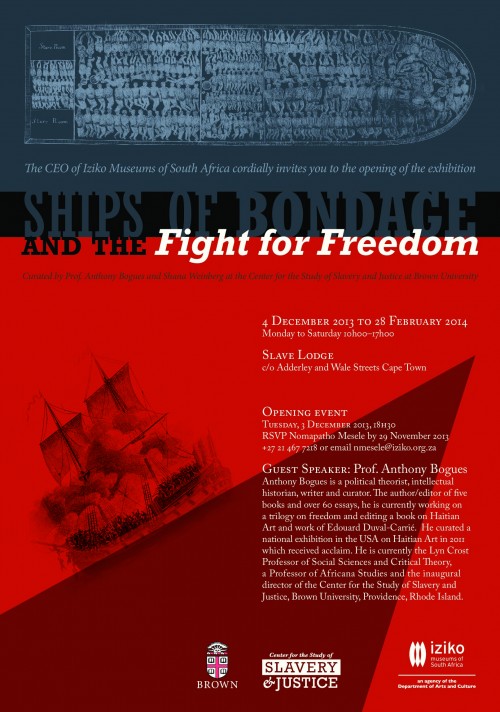Anthony Bogues, at the introduction of the Ships of Bondage exhibit currently held in the Slave Lodge museum in Cape Town, South Africa (and features studies of the Amistad, the Sally, and the Meermin), speaks of slavery and freedom, representation, the sedimentary foundations of slavery, colonialism, colonial modernity and these historical processes that connected the world (41:56). Beginning with reflections on Toni Morrison’s Beloved and André Brink’s Philida, Professor Bogues asks, “How does one represent slavery?” alluding to the attempt “to represent what sometimes we cannot name,” as he wrestles with the idea of freedom as it pertains to the political, the historical and the practice of being human: his thoughts a direct contribution to what he calls “the public curriculum.”
-
Ships of Bondage and the Fight for Freedom
Curated by Anthony Bogues and Shana Weinberg, “Ships of Bondage and the Fight for Freedom examines the global networks involved in the African slave trade. This exhibition tells the story of slave insurrections on three vessels including the Amistad, the Meermin, and the Sally, exploring the struggle of the enslaved to resist captivity, gain freedom, and return to their homelands.”
Brown University’s Center for the Study of Slavery and Justice.
-

Video: Slave–Citizen–Human
http://youtu.be/Oi4mViR-IOA
Tony Bogues, as a part of Brown University’s Graduate Student Colloquium on Slavery and Justice, engages issues of enslavement, an enslaved person’s transition to that of a “subject,” of a “citizen,” and how the idea of the human affects and is affected by narrative, memory and practice.
“You can’t think about questions of war and conflict without thinking about questions of ‘subjects’ and ‘citizens’…Because what they revolve around, I would argue, are certain conceptions of ‘What does it mean to be human?’ and ‘What kind of accrue to those humans?’” -Anthony Bogues

